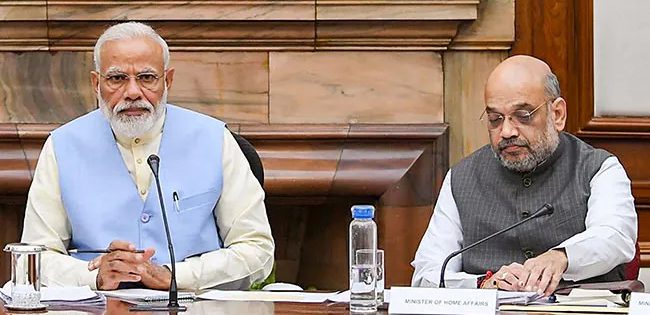No Indian Prime Minister has ever given as much focus to the cooperative sector as Narendra Modi. Not only did he establish a separate Ministry of Cooperation, but he also takes a keen interest in the sector’s growth. In line with this commitment, the Prime Minister chaired a high-level meeting on Thursday at 7 LKM to review the progress of the cooperative sector.
Discussions centered on advancing “Sahkar Se Samruddhi” through technology, increasing youth and women’s participation in cooperatives, and reviewing key initiatives of the Ministry of Cooperation. The meeting was attended by Home and Cooperation Minister Amit Shah, Secretary of the Ministry of Cooperation Dr. Ashish Kumar Bhutani, Principal Secretary to PM Dr. P.K. Mishra, Principal Secretary-2 to PM Shaktikanta Das, Advisor to PM Amit Khare, and other senior officials.
The Prime Minister underscored the importance of collaborating with global cooperative organizations to expand India’s cooperative sector. He emphasized promoting organic products through cooperative networks, exploring export markets, and developing a soil testing model to improve agricultural practices. Additionally, he highlighted integrating UPI with RuPay KCC cards to enhance financial transactions and called for fostering healthy competition among cooperative organizations.
To ensure transparency, Modi stressed documenting cooperative assets and advocated for cooperative farming as a sustainable agricultural model. He also recommended leveraging digital public infrastructure (Agristack) to improve agricultural services through cooperatives.
On the education front, he proposed introducing cooperative courses in schools, colleges, and IIMs. He suggested highlighting successful cooperatives to inspire young entrepreneurs and ranking cooperative organizations based on performance to encourage competition and growth.
During the meeting, the Prime Minister was briefed on the National Cooperation Policy and the Ministry’s key achievements over the past three and a half years.
The Ministry has formulated the National Cooperation Policy 2025 to fulfill the vision of ‘Sahkar Se Samruddhi.’ This policy seeks to drive holistic development in the cooperative sector, particularly benefiting rural communities, women, and youth. It promotes a cooperative-based economic model with a strong legal and institutional framework to enhance grassroots impact.
Since its inception, the Ministry has launched 60 initiatives across seven key areas, focusing on digitizing cooperatives, strengthening Primary Agricultural Credit Societies (PACS), and modernizing cooperative sugar mills. The government follows a “whole of government approach,” integrating over 15 schemes from 10 ministries at the PACS level. This strategy has diversified cooperative businesses, generated additional income, and expanded rural access to government schemes.
To strengthen cooperative education, a Bill has been introduced to transform IRMA Anand into “Tribhuvan Cooperative University,” granting it the status of an Institution of National Importance.
With over 8.2 lakh cooperatives and 30 crore members, the cooperative sector is a crucial pillar of India’s economy, particularly in agriculture, rural development, and economic inclusion.













































